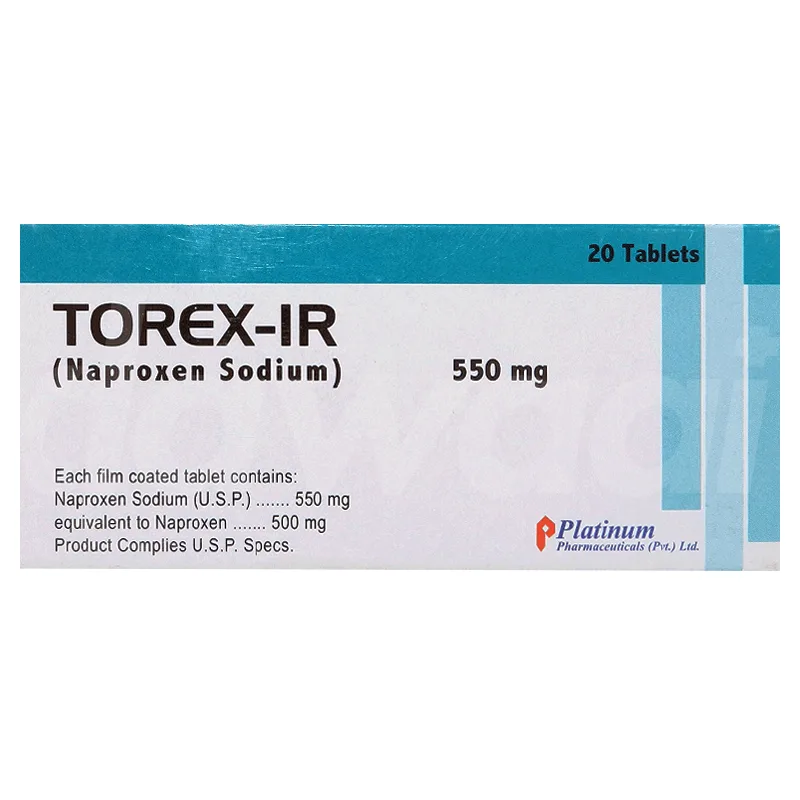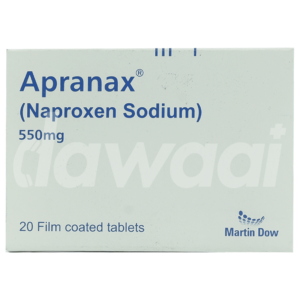Introduction
Expert Advice
- Take immediately after meals.
- Do not crush, break or chew the tablet. Swallow whole with a glass of water.
- Do not lie down 15-20 minutes after taking this medicine.
- Do not take for more than 10 days without consulting a prescriber.
- Discontinue medication and inform your doctor immediately if there is constant stomach pain/cramps or blood in stool.
- Avoid alcohol during therapy.
- Take sufficient amounts of fluids (2-3 liters per day) to maintain hydration, unless restricted by the prescriber.
- Do not take aspirin, aspirin containing medicines or anti-inflammatory medications without consulting prescriber.
- Check your weight every week and report unusual weight gain (3-5 lbs per week).
- Pregnant females should not take it in the last trimester of pregnancy.
Primary Uses
Pain and inflammation
Indications
This medicine is used in the treatment of rheumatoid arthritis (an autoimmune condition with joint inflammation), osteoarthritis (inflammation in the bones), ankylosing spondylitis (an inflammatory condition that results in the fusion of bones in your spine), musculoskeletal disorders, acute gout (a complex form of arthritis), dysmenorrhea (painful menstrual cramps), migraine (brain disorder that causes intense headaches) and post-operative pain.
Side Effects
GI upset, bleeding and ulceration, abdominal pain. Skin and hypersensitivity (allergy) reactions , headache , dizziness , tinnitus(perception of noise or ringing in the ears) , vertigo , edema (fluid retention), hypertension (high blood pressure), cardiac (heart) , dyspnea (difficulty in breathing ), impaired hearing , visual disturbances, and thirst among other effects. Consult your doctor for further details and if your notice any other effects.
Warnings
 Pregnancy
Pregnancy
This medication is contraindicated in pregnant females.
 Lactation
Lactation
This medication is contraindicated in lactating females.
 Alcohol
Alcohol
Please avoid consuming alcohol when taking this medicine.
 Precautions
Precautions
Elderly patients, patients who are allergic to naproxen and those with renal (kidney) or hepatic (liver) impairment, asthma (a disorder of difficulty in breathing due to narrowing of airways), cerebrovascular disease (condition in which blood flow to the brain is affected) or peripheral vascular disease (a condition in which vessels outside the brain or heart narrow, block or spasm), hypertension (high blood pressure), hypovolemia (decrease in blood volume), visual disturbances are sensitive to the drug. Those who are on long term therapy of naproxen should be monitored closely. Lowest effective dose should be used for short term therapy.
Contraindications
This medicine is contraindicated in patients with aspirin/anti-inflammatory induced allergy, active gastric or duodenal ulcer (sores on stomach or upper part of small intestine), severe heart failure, haemorrhage (internal bleeding due to rupture of a vessel), bleeding diathesis (a tendency to bleed easily), hepatic (liver) and renal (kidney) impairment and in patients with creatinine clearance <20ml/min.
FAQS
What is naproxen used to treat?
It reduces inflammation and pain in joints and muscles.
How to store this medicine?
Please store the tablet form of this medicine at room temperature (18-25 Celsius). Keep medicine away from children, and excessive light and moisture. Please read the leaflet provided with the medicine for further storage guidance.
Does naproxen increase blood pressure?
It may cause a small amount of increase in blood pressure.
Is naproxen a muscle relaxant?
Naproxen is a muscle relaxant.
What are its precautions?
Patients with heart, renal (kidney) and hepatic (liver) impairment, high blood pressure, asthma, vascular disease, visual disturbances, Crohn’s disease, and elderly should be cautious.
How to administer this medicine?
This medicine is mostly available in oral form, preferably taken immediately after meals. The dosage is dependent on the age, condition and its severity. Please consult your doctor before use. Not recommended for children under 5 years for juvenile idiopathic arthritis. Not recommended for individuals below 16 years for musculoskeletal disorders and dysmenorrhea.
Is it safe to take naproxen everyday?
Usually it is not recommended to take naproxen for long term use.
Disclaimer
Dawaai’s intention is to make sure that it’s consumers get information that is accurate, reviewed by an expert and error-free. However, the information mentioned here should not be used as a replacement for the advice of a qualified physician. The information given here is for informational purposes only, which may not cover all possible precautions, side effects, contraindications or drug interactions. Consult your doctor and discuss your queries related to any medicine or disease.






Reviews
There are no reviews yet.